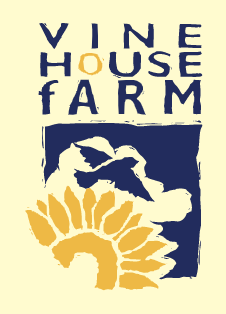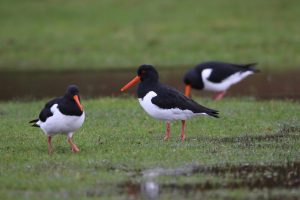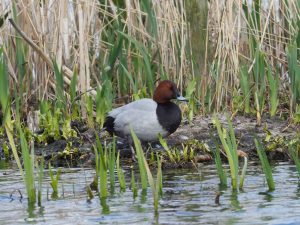
One of the driest Decembers during the last 45 years, only 12.5mm or half an inch of rain, but we still ended up with 20% more rain in 2016 than average. Our average being 531mm and the 2016 total being 633mm here at Deeping St Nicholas. Six nights of frost in December, the coldest being -5ºC.

All our work in the fields was finished in record time. This was due to us having an autumn where we lost very few days due to wet weather but prices of wheat and barley remain low. Farmers need high oil prices because when the price of oil is high everything else is high.
Last month I was saying that potato prices would be rising steadily but sure things don’t always materialise. Potato prices have started to drop – whether this will be temporary no one knows. Two thirds of our potato crop is not on contract but we belong to a marketing organisation called Nene Potatoes and we have agreed to release 300 tonnes per month for the rest of the season. We believe they can return us a higher price per tonne than if we were doing the selling ourselves. Nene potatoes market about 60,000 tonnes of potatoes each year and as a result of this volume and the contacts that they have, they will send our potatoes to the most suitable pack houses.
Every year that I have been farming we have always ploughed all the land that was going to have be planted with a spring crop, but these last two years we have not ploughed some of it. About 120 acres have been planted with oil radish, which should help to condition the soil and stop the blackgrass growing. It was evident last spring that the fields sown with oil radish the previous autumn had a lot more birds on them than the surrounding fields. This means that there was more food on those fields.
Bird populations are declining because they are running out of food at certain times of the year. If we can provide more food when it is generally in short supply that must be a good thing, so we will be monitoring those fields that are planted with oil radish this spring and the surrounding fields.
We also have two other fields that we have strip tilled. We have run tines about 10ins deep and 18ins apart across these two fields, which meant the soil on the surface between the rows wasn’t disturbed. In the spring we will cultivate the two inch wide band of soil we disturbed in the autumn, and drill sugar beet in one field and sunflowers in the other one. It would’ve required a very skilful driver a few years ago to drill the seeds exactly in those slots, but today our satellite navigation system will cope with that accuracy quite easily.
Winter is the time for maintenance – we have already started on some but not the type of maintenance we had planned. We have been inundated with hare coursers so have been making gates to keep these unwanted visitors out. They drive all over crops throughout the Fens, letting their greyhounds course hares. We call the police, but by the time the police arrive they usually have gone.


Winter is a time when we probably have more birds on the farm than at any other time of year because we feed the birds in four places on the farm each morning. We expect to be feeding around two thousand small birds around the farm through the winter. Reed Buntings, Chaffinches, Tree Sparrows and Linnets make up the bulk of them but there are also Yellowhammers, Greenfinches, House Sparrows and Goldfinches amongst them. I have only seen two Bramblings so far this winter. The Linnets on the whole do not come to the food, they are feeding on the wild bird cover plots that are growing in several places around the farm on the Natural England Higher Level Stewardship scheme.
With all those small birds around they quite naturally attract predators and it is quite possible to go down the farm and see, Sparrowhawk, Kestrel, Buzzard, Red Kite and Marsh Harrier. Fifty years ago the only one seen down the farm would have been the Kestrel. I also see Peregrine and Merlin occasionally. I am not seeing Barn Owls very often which is a good thing, there must be good numbers of voles around here to hunt at night.
Lapwings are still with us as well as a few Golden Plover although not as many as there were a month ago. We probably have 100 pairs of Lapwings that breed in Deeping, Baston and Langtoft Fens and I should think those are the ones that we still have around.
We now have two Robins that are wintering in the building where we store, pack and dispatch the bird seed. When the lights are turned on in the morning we are serenaded by Robins, without traffic or wind noise, just pure Robin music, and for quite a long time because they are in competition with one another. There is also a Blackbird that comes in each day. It comes and looks under the sliding door. The warehouse team can see a shadow moving around so they open the door for him to come in for an hour or two. These three visitors don’t make much of a mess, but once their offspring learn to follow them in the building then I expect we will have to start limiting numbers.
We have more Blackbirds around this winter than usual, on the farm and in the garden. There are two possible reasons for this. The recent wet summer could have made more food available, such as more worms coming to the surface to feed their young and therefore they reared more young and of course if food was more available for the young birds, more would have survived into the autumn. A lot of young birds die in the first few months of fledging if food is not in surplus for them.
The other reason could be that we had large falls of Blackbirds in the autumn that came to us on the north easterly winds. I remember one day in October seeing Blackbirds everywhere on the Norfolk coast. Have you seen more Blackbirds about than usual?
Talks & Events
Winter Bird Watch at Vine House Farm
Saturday 21st January
Saturday 28th January
Over the next few weeks Nicholas will be giving talks on Farming and Wildlife to:
Wednesday 8th February Derby RSPB group in Littleover
Thursday 2nd March Malvern branch of the Worcester Wildlife Trust



